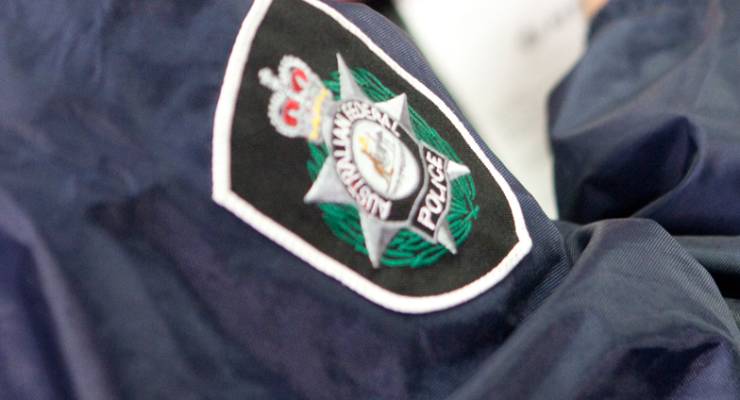
The Australian Federal Police has blocked the release of documents about the raids on Labor HQ seeking to learn the source of damaging leaks from the NBN company.
In May police raided the Melbourne office of former communications minister Stephen Conroy and the Brunswick home of Andy Byrne, staffer for shadow communications minister Jason Clare, as part of an investigation into a series of damaging leaks from NBN to the ALP and media over a period of months from November last year.
The AFP has maintained it is an independent agency and the timing of the raid during the election campaign was because the investigation had reached a point where the AFP could act on evidence to try to determine — and stop — the source of the leaks. Two NBN staffers have been stood down following interviews conducted on the same day as the raids.
In the days following the raids, Communications Minister Mitch Fifield said he has been told that NBN had referred the matter to the AFP in November last year, but he maintained he didn’t tell the Prime Minister. AFP commissioner Andrew Colvin insisted that Justice Minister Michael Keenan had been informed of the raids when they occurred. Turnbull said at the time that he had not been made aware until the day of the raids: “Well, the first I heard of the AFP investigation was yesterday, when I was advised by the Justice Minister shortly after he’d been advised by the Commissioner.”
After the raids, Crikey filed four freedom of information requests with both the AFP and NBN attempting to determine who was aware of the plans to raid Labor’s offices, the justification for the timing, and whether evidence obtained during the raid — now under lock and key while a parliamentary privilege claim is set to be determined after the election — was used in determining the source of the leaks and the decision to stand down two staff.
Although the AFP found 41 pages of documents related to the decision to raid Labor’s offices, police either redacted or refused to release almost every page. The AFP initially said one document was redacted because it was a document prepared for cabinet.
“Deletions are made on the grounds that disclosure would divulge information submitted to the cabinet for its consideration, or is proposed by a minister to be so submitted,” said the AFP’s reasoning.
Crikey queried with the AFP why this exemption had been used if cabinet had no been informed before the raids. A spokesperson blamed a stuff-up in the response, and instead said the documents were AFP minutes, not cabinet documents. They were exempt because:
“Provision of this document would disclose matter that would reasonably be expected to prejudice the conduct of an investigation of a breach, or possible breach, of the law, or prejudice the enforcement or proper administration of the law in a particular instance.”
The main exemption for these documents appears to be because the AFP believes it would put at risk the “security of Australia’s communications infrastructure”.
The only glimmer of information released shows that the AFP were discussing plans to raid ALP offices as early as Sunday the week of the raids.
A second freedom of information request was filed seeking the timing of the interviews with NBN staffers to determine the leakers. A similar request to NBN was refused on the grounds it would potentially identify the alleged leakers, but the Australian Federal Police released case notes outlining the day’s events.

The notes show at least five NBN employees were interviewed at the company’s North Sydney office between 2.30pm and 8.30pm on the day of the raids. The raid at ALP headquarters commenced at about 4pm, the raid on Byrne’s home was shortly after, but the raids did not finish until 5am the following morning.
There has been concern that NBN might have used evidence currently under consideration for protection under parliamentary privilege in its decision to stand down two employees while the AFP investigation is ongoing, but the interviews were completed well before the AFP had finished scouring Byrne’s home.
The Australian reported on the weekend that one of the staffers stood down was believed to be helping out campaigning for the Labor Party.
NBN chair Ziggy Switkowski has faced calls from Labor to resign after it was revealed last week he was “strongly” advised by the head of the Department of Prime Minister and Cabinet, Martin Parkinson, against publishing an op-ed defending NBN’s actions in this case. Parkinson has said the article appears to be in breach of caretaker conventions during an election. Switkowski has said that he needed to combat the media portrayal of the leakers as whistleblowers for the good of morale within the government-owned entity.








It turns out the AFP love scrutiny as much as the NBN!
There needs to be an independent investigation into the AFP’s handling of this issue to ensure it is above board. All corruption festers with secrecy.
The raided his office, as they have evidence that the leaker was linked to Stephen Conroy’s Office. The leaker is an ALP member. Why does AFP have to disclose that pre the criminal trial?
The more secret, the more likely that the raids were dodgey in some way.
Be good to be proven wrong, but then it wouldn’t be secret!
If “Switkowski has said that he needed to combat the media portrayal of the leakers as whistleblowers for the good of morale within the government-owned entity” I would love to know how this would improve morale.
Sorta like the old axiom, ‘the beatings will continue until morale improves’.
“Justification”? That’s pretty obvious isn’t it? …. “Haneef”?